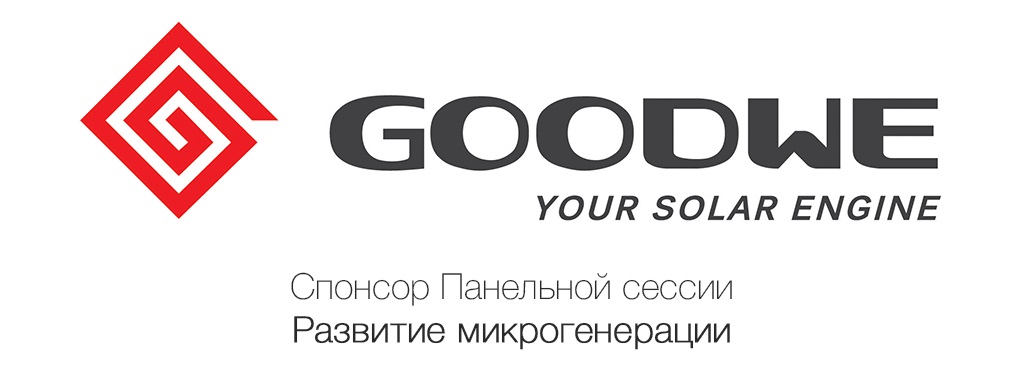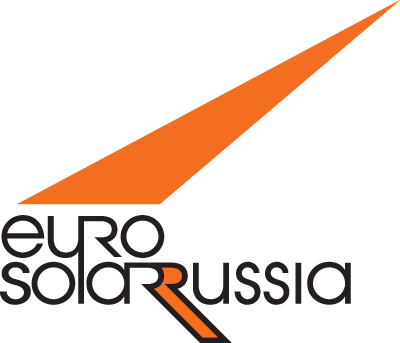The international forum "Renewable energy for regional development" brings together Russian and foreign market participants, representatives of relevant ministries and departments, regional and local administrations, the scientific community and financial organizations developing projects in the field of renewable energy.
Developing renewable energy
developing regions
Today, the retail market of renewable energy in Russia starts to grow rapidly. To the previously implemented projects in isolated energy regions of the Far East new projects in other regions of the country are being added. A system of support for energy supply projects for consumers on the basis of RES, at the regional level and in terms of the development of microgeneration, is being formed. The potential for further development of RES projects in retail markets, including remote and isolated areas, is obvious.
- What additional measures should be taken to support the implementation of RES projects on retail markets?
- How can we use the international experience in the development of renewable energy projects?
- What technological solutions are needed in different regions of the country?
- What promising technologies based on renewable energy sources can be used for power supply of consumers in the near future?
- What funding options are available?
- The forum participants will try to answer these and many other questions during round tables and panel discussions.
The forum will allow market participants to establish new business contacts, exchange of experience and relevant information on available support tools, technical solutions and initiatives in the field of alternative energy development and to develop new projects.
Organizing Committee
-
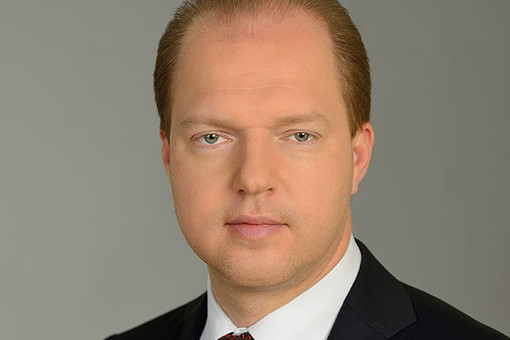
Alexey Kaplun
-
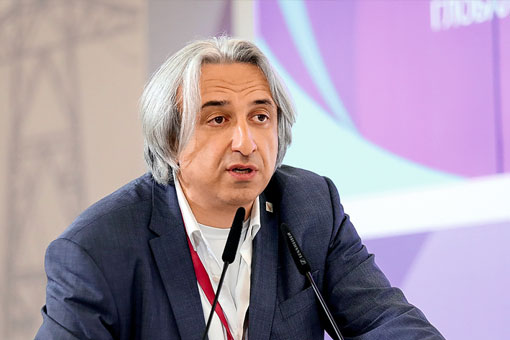
George Kekelidze
-
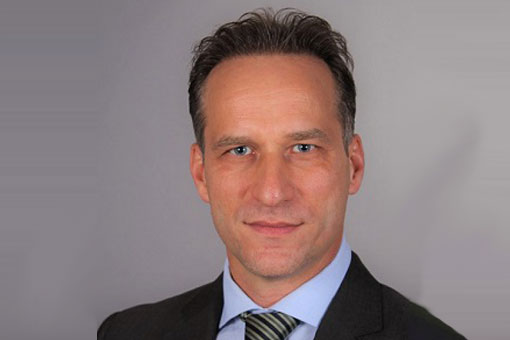
Christoph Urbschat
-
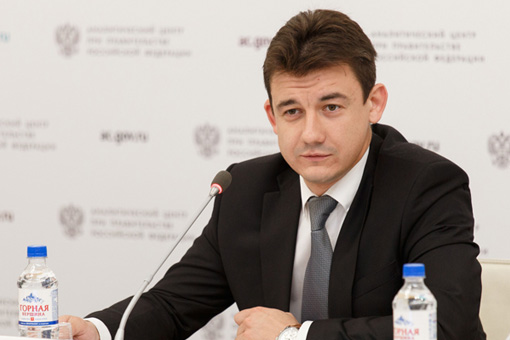
Ivan Ivanov
-
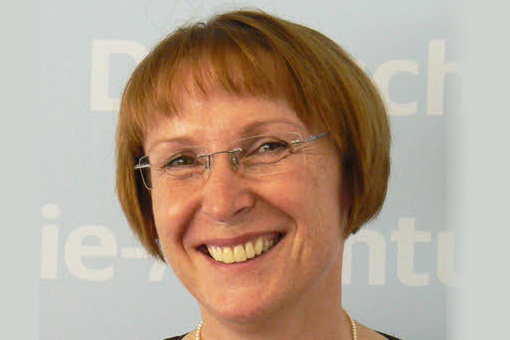
Bärbel Warnig
-
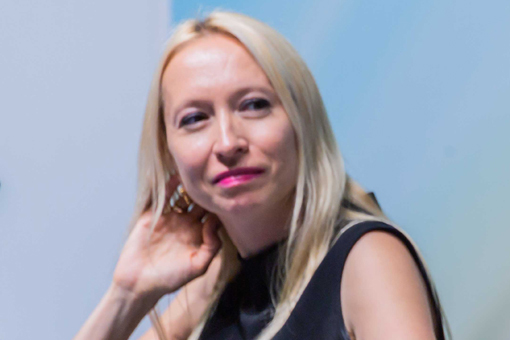
Ekaterina Galitsyna
EVENT PROGRAM
Registration9.30 – 10.00
Panel discussion10.00 – 11.30
Regulatory regulation of RES. Renewable energy for energy supply to consumers on retail markets, in remote and isolated energy systems, in the Arctic zone
Moderator: Alexey Kaplun, Member of the Board of NP "Eurosolar Russia"
In contrast to RES development projects in the wholesale electricity market zones in Russia, the system of support for the implementation of projects using RES in the retail markets has only recently begun to take shape. The Federal Law "On Amendments to the Federal Law "On Electric Power Industry" in terms of microgeneration development" has been adopted, and the Resolution of the Russian Government on support of projects for optimization of power supply to remote territories is being developed.
What major trends in Russian rulemaking can the market expect in the near term? Can Russia use the experience of developing a regulatory framework in European countries, or should its own specifics be taken into account?
To what extent are the existing support measures for technologies and projects of the retail market, remote and isolated energy systems sufficient for the system development of this RES direction? How are RES technologies adapted to operate in the Arctic? Will micro-generation in Russia develop at the European pace? What additional incentives are required for its development? Do Russian producers see prospects in this market and are they ready to meet the potential demand?
Participants:
- Sergey Anfimov, Head of the Audit and Technological Expertise Department of Association NP Market Council
- Tobias Merkel, Managing Director of Solar23
- Maxim Polishchuk, Head of the Interaction with Pilot Regions, The German Society for International Cooperation (GIZ)
- Egor Grinkevich, Deputy General Director of Novawind JSC
- Vasily Potemkin, Managing Director of the Corporation for the Development of the Far East and the Arctic
- Roman Ishmukhametov, Associate of St. Petersburg Representative Office of Baker & McKenzie - CIS, Limited
- Adil Iskhakov , Executive Director of Kurai Solar LLC
Coffee break11.30 – 12.00
Panel discussion12.00 – 13.30
Microgeneration development
Moderator: Dmitry Burykin, Head of educational projects of NP on RES "EUROSOLAR Russia
Solar energy and energy efficient technologies in private construction will soon realize a steady development, pleasing not only large industrial companies, but also ordinary households. The adoption of the law on microgeneration will stimulate the development of small enterprises for the implementation of renewable energy technologies and energy efficient solutions. Heads of these enterprises will present their successful projects at the panel session. The associations EUROSOLAR Russia, Ideas in Energy and the German Solar Energy Association (DGS) are preparing training programmes for relevant specialists in different regions of the Russian Federation.
Participants:
- Carlos Martinez, Project Manager at GoodWe Europe in Russia
- Alexander Kiryukhin, Professor NRU "MEI"
- Akram Mirzabayev, CEO of MIR SOLAR
- Albek Sarbasov, CEO of ECONRG
- Vadim Pavlov, Director of the Ulyanovsk Region Technological Development Agency
- Nikolay Popov, General Director Volta Energy
- Tatiana Shestopalova, Director of the Institute of Hydropower and Renewable Energy Sources of the National Research University "MEI", Head of the Department of GIE, Ph.D., Associate Professor
Lunch break13.30 – 14.30
Panel discussion14.30 – 16.00
Renewable energy management solutions for industrial consumers
Moderator: Roman Ishmukhametov, Lawyer, Representative office of Baker and Mackenzie in St. Petersburg
The global market for energy management and storage systems is growing rapidly. The main reason for growth is the large-scale development of RES (to smooth the unevenness of renewable generation) and electric transport (batteries for electric vehicles), directly or indirectly using storage systems. The driving force is technological progress in a number of energy storage solutions that can reduce the cost of systems to a level that is acceptable to the market in the short to medium term.
What technologies are reasonable for Russia to develop in this area, and is the Russian industry competitive? What energy storage systems will be in demand on both Russian and international markets? What will be the role of modern energy storage technologies based on rechargeable and redox batteries? What are the prospects of the hydrogen fuel cell and hydrogen cycle market for energy storage and production? Will complex projects based on electrochemical processes of energy storage in RES be developed in Russia in the near future? What are the most promising new materials for electrochemistry?
Participants:
- Vitaly Puziy, Energy auditor at Energy on Track
- Mikhail Kozlov, Technical Director, InEnergy
- Adil Iskhakov , Executive Director of Kurai Solar LLC
- David Wedepohl, Managing Director for International Relations at German Solar Association
- Georgy Ermolenko, Director of the Department of External Relations, Executive Committee of the CIS Electric Power Council
- Ishii Takahiro, Mitsui & Co
- Victor Yavchunovsky, General Director of NPF "ETNA Plus"
Coffee break16.00 – 16.30
Panel discussion16.30 – 18.00
Applied research and development for RES development with the involvement of Russian and Swiss funds and development institutions
Moderator: Igor Pivovarov, entrepreneur, expert in the field of artificial intelligence, a member of the RG NTI Neuronet
How can commercial companies enter foreign markets? A permanent interface has been created between Switzerland and Russia, which helps innovative companies from Russia to enter Switzerland and vice versa, from Switzerland to Russia. The first successful cases of such companies will be presented.
Participants:
- Julie Bächtold, Deputy Head Swiss Business Hub Russia
- George Kekelidze, Chairman of the Board of the Russian Association for Renewable Energy EUROSOLAR RUSSIA
- Andreas Dreisiebner, Head of the consortium of Swiss companies on renewable energy projects in Russia
- David Clement, Project Manager of Plumettaz SA
- Vladimir Masolov, CEO, VDM-Tekhnika LLC
- Robin Muller, Head of International Sales at BE Energy
- Konstantin Zalessky, Director of "MTE Metering Russia"
- Anton Usachev, Deputy General Director of Hevel Solar
Plenary session10.00 – 12.00
Renewable Energy: Regional Challenges and New Opportunities
Moderator: George Kekelidze, Chairman of the Board, EUROSOLAR Russia
In recent years, Russia has been implementing a coherent policy for renewable energy (RE) development. The Russian Federation became a member of the International Renewable Energy Agency (IRENA). There is a program of support for RES under capacity provision contracts, under which projects are implemented in the wholesale electricity market. Due to the established competition in the RES market in recent years it has been possible to significantly reduce the average unit capital costs of projects.
At the same time, the retail market for renewable energy is developing in Russia. Projects in other regions of the country are being added to the previously implemented projects in isolated energy districts of the Far East. The Federal Law "On Amendments to the Federal Law "On Electric Power Industry" in terms of microgeneration development" came into force, the range of opportunities is expanded by the Resolution of the Russian Government to support projects for optimization of energy supply in remote areas. The potential for further development of RES projects in the retail markets, including remote and isolated areas, is evident. Along with solving the problems of improving the reliability of energy supply to isolated areas, the priority of RES development in Russia is the development of advanced technologies and competencies with the further export of high-tech products.
What additional measures should be taken to support the implementation of RES projects in the retail markets? How will the micro-generation market develop further? How can international experience in the development of renewable energy projects be used? What technological solutions are needed in different regions of the country? What promising renewable energy technologies can be used for power supply to consumers in the near future? What financing opportunities are available?
Participants:
- Alexey Kulapin, General Director of the Russian Energy Agency
- Ricardo Gorini, Senior Program Manager IRENA
- Kristina Haverkamp, Managing Director of German Energy Agency (dena)
- Anatoly Bobrakov, Deputy Minister of the Russian Federation for the Development of the Far East and the Arctic
- Ekaterina Galitsyna, Director KfW IPEX Bank Russia and CIS, Member of the Association "Women in Energy"
- Artur Czerniejewski, Head of Swiss Business Hub Russia
Coffee break12.00 – 12.30
12.30 – 14.00
Hydrogen technologies - near future or distant prospect. Regional development projects.
Moderator: Yuri Melnikov, Senior Analyst at the Energy Center of the Moscow School of Management SKOLKOVO
Analysts predict that by 2050, hydrogen technology could meet about a quarter of the EU's total fuel needs: it would provide enough energy to fuel 42 million cars, more than a million and a half trucks and a quarter of a million buses. Hydrogen is now increasingly seen as key to the success of the energy transition. Experts from the International Energy Agency IEA estimate that adding just 20% hydrogen to the European gas grid would reduce CO2 emissions by 60 million tons per year. Russia has approved a Concept for the development of hydrogen energy, which provides for providing about 20% of the world's hydrogen exports by 2050 through supplies from Russia.
Does the development of hydrogen technologies mean the abandonment of traditional energy production sources? When can we expect a large-scale hydrogen generation project in Russia and export of hydrogen? Which hydrogen-based technologies will be most demanded by consumers in the near future and in the long term?
Participants:
- Ivan Ivanov, Deputy General Director of the Russian Energy Agency
- Thorsten Herdan, Head of Energy Policy Department at Federal Ministry for Economic Affairs and Energy of Germany (BMWi)
- Tatiana Mitrova, Professor, Scientific Director of the Energy Center of the Moscow School of Management SKOLKOVO
- Alisher Kalanov, Head of the Investment Division of RUSNANO
- Mikhail Guzenko, Minister of Energy of the Sakhalin Region
- Alexey Kaplun, Member of the Council of the Russian Association for Renewable Energy EUROSOLAR RUSSIA
- Alexey Kashin, Founder of InEnergy
- Motoko Daimon, CEO of Kawasaki Heavy Industries Rus
- Mugihiko Yanagida, Deputy Director General of the Department of Modern Composite Materials Mitsui & Co
Lunch break14.00 – 15.00
15.00 – 16.30
Green finance: the examples of RES projects
Moderator: Ekaterina Galitsyna, KfW IPEX Bank, Country Director Russia and CIS, Member of the Association "Women in Energy"
Purpose of the Discussion: to discuss the possibilities of financing renewable energy projects, taking into account the planned Taxonomy for green projects, practical examples of implemented projects. To voice the requirements of banks, the wishes of investors and developers of projects. Look at alternative sources of funding and all possible support tools. How to build relationships with stakeholders of Renewable Energy Projects at the initial stage, so that the Project financing structure becomes acceptable to all participants in the process?
Participants:
- Dmitriy Aksakov, Vice President for ESG, VEB.RF
- Anna Lapkina, Head of the Department of Export and Structural Financing of Unigreen Energy, Avelar Solar Technologies LLC
- Kirill Semenov, Deputy Chairman of the management Board, Member of the Board, MSP Bank
- Mikhail Molchanov, CEO of the Solar Systems Group of Companies
- Tobias Merkel, Managing Director of Solar23
- Kristina Haverkamp, Managing Director of German Energy Agency (dena)
- Alexander Gareev, Managing Director, Eurasian Development Bank
- Christof Sagasser, Managing Director of COVENDIT Corporate Finance
- Roman Ishmukhametov, Associate of St. Petersburg Representative Office of Baker & McKenzie - CIS, Limited
Coffee break16.30 – 17.00
17.00 – 18.30
RES as an element in the system of sustainable development and decarbonization in various sectors of the economy
Moderator: Alexey Kaplun, Member of the Board of NP "Eurosolar Russia"
The climate agenda and the tasks of reducing greenhouse gas emissions are playing an increasingly important role in the energy strategies of many countries. So, the European Union is going to achieve carbon neutrality by 2050, the same goal was announced by the Japanese Government and the US Administration, China is going to achieve carbon neutrality by 2060. One of the mechanisms of decarbonization is an increase in the share of RES in the energy balances of countries, the use of renewable energy sources in various sectors of the economy.
Participants:
- Mikhail Yulkin, expert of the International Center for Sustainable Energy Development under the auspices of UNESCO
- Chris Buttkus, Director of Takeda Pharmaceuticals Branch
- Yulia Grishchenkova, Head of the Representative Office of the German Society for International Cooperation (GIZ)
- Ekaterina Galitsyna, Director KfW IPEX Bank Russia and CIS, Member of the Association "Women in Energy"
- Alexander Dolganov, Deputy Chairman of the Management Board of Сеnter-Invest Bank
- Alla Belikova, Head of the German National Tourist Office in Russia
- Sergey Novikov, Director Svet Solnca LLC
- Vadim Dormidontov, Executive Vice President of Gazprombank
CONDITIONS OF PARTNERSHIP
Participation of delegates in the conference is free of charge. Participants pay for their own arrival and accommodation in Moscow. The organizers, if necessary, can provide assistance with hotel reservations. When planning your participation, please see the schedule of arriving flights. It is also recommended to buy tickets in advance.
The international forum "Renewable energy for regional development" is a non-profit event, participation of delegates in the conference is free. At the same time, the organizers expect voluntary sponsorship from commercial companies in order to improve the overall level of the event.
Key benefits of voluntary sponsorship:
- Information support of the company's participation in the forum. It includes the application of the logo on all information media (where provided), the work of the press center of the conference (ensuring the distribution of the press release, the organization of a special press approach).
- Guaranteed performance of the company's speaker in one of the sessions within the business program.
- Placing information boards about the company. Laying out their own handouts.
- Distribution of advertising of the company together with the main handouts of the Forum.
- Possibility to hold own events within the framework of the Conference (signing of agreements, briefings and press conferences).
Please check with the organizers about possible sponsorship packages and the cost of services.
Dina Yatskova
- Tel. + 7 495 913 6725
- Mob. +7 985 763 9244
- info@go2ru.com

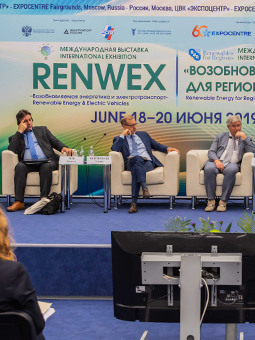
 Speakers
Speakers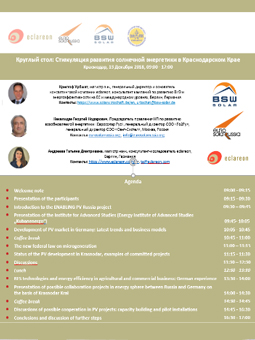
 Presentations
Presentations
 Partners
Partners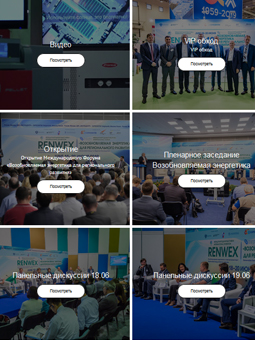
 Photo/Video
Photo/Video